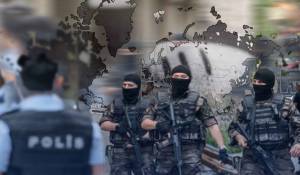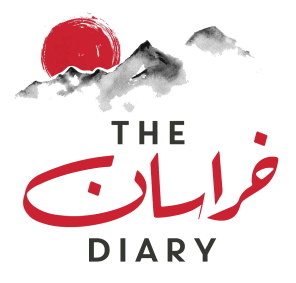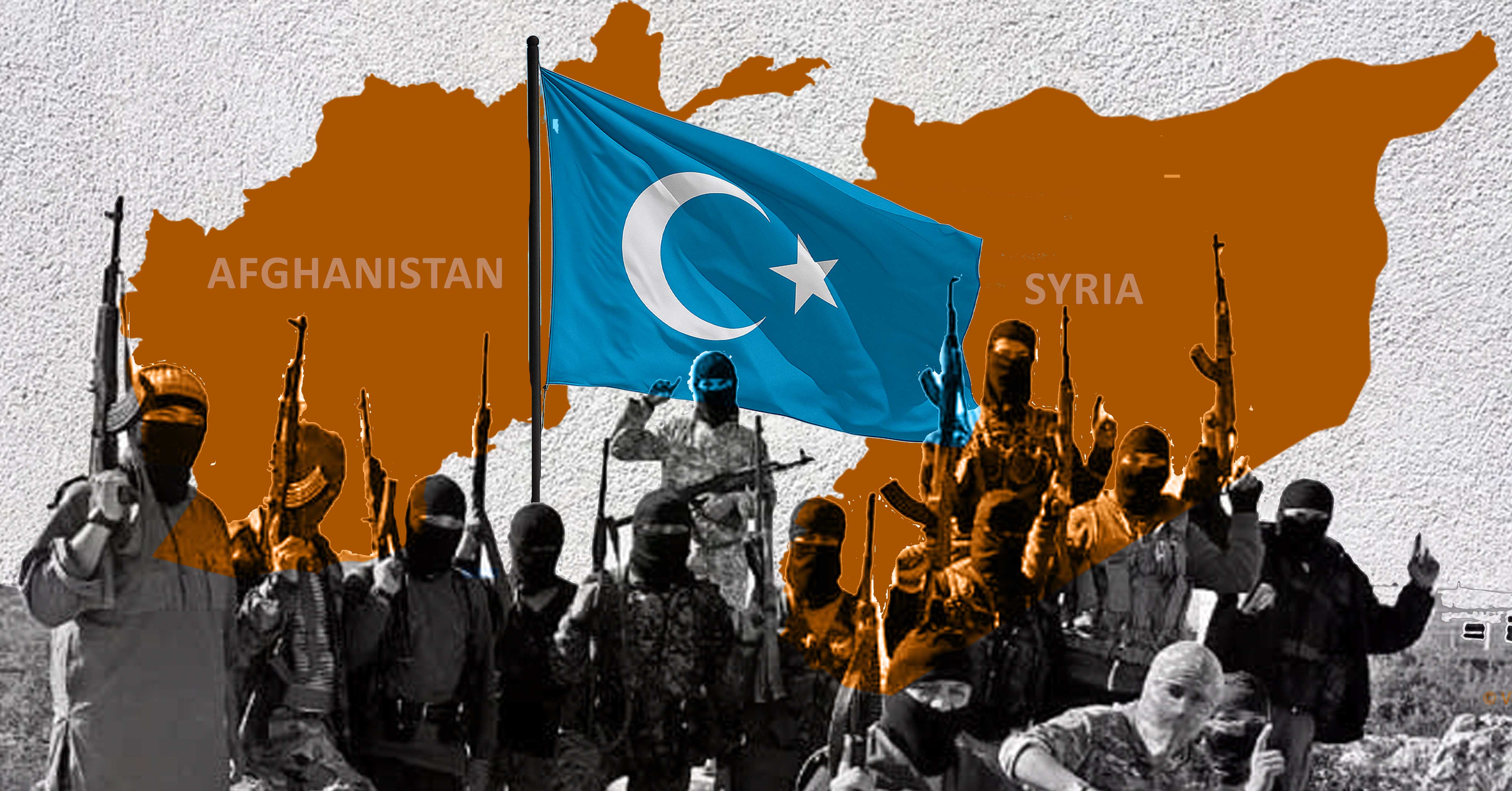On March 5, the Turkistan Islamic Party (TIP) released a revised version of its organizational statute, announcing a return to its original name, the East Turkistan Islamic Party (ETIP). This name change, reportedly approved by the Leadership Shura based in Afghanistan, aims to enhance the visibility and appeal of the East Turkistan cause. The 22-page document, which was amended in late May, serves as a comprehensive manifesto for the ETIP, encompassing a historical overview of the organization, a detailed list of objectives, strategies and policies developed by the group, and its ultimate goals. This manifesto articulates the group's vision and direction as it seeks to advance its cause.
The key aspect of the document lies in its narratives, language, and historical references, which predominantly reflect a nationalist-separatist ideology with only vague religious undertones. After providing a brief historical account of the group's formation, the document articulates the ETIP's goal of liberating the people of East Turkestan from Chinese occupation and ensuring rights for all ethnic groups in the region. Notably, the ETIP asserts its intention to revive the two short-lived republics of the previous century: the Turkic Islamic Republic of East Turkistan (TIRET) established in the 1930s and the Soviet East Turkistan Republic (ETR) founded in the 1940s. This assertion underscores a deliberate recognition of a political continuity between the contemporary jihadist national movement and the historical republican past.

Front page of the new statute
Another noteworthy aspect is the shift in the organization's name. The document explains that in 2000, the ETIP adopted the designation of Turkistan Islamic Party (TIP) to garner support from other Turkic ethnic groups in Central Asia that had joined the movement during its time in Afghanistan, thereby reflecting a broader regional approach to its struggle. However, in a clear pivot towards a more territorially focused agenda, the group has reverted to its original name, the East Turkistan Islamic Party (ETIP), explicitly signaling its intent to concentrate solely on the issues pertaining to East Turkistan.
The nationalist tone is evident in the distinctions between the flag of the ETIP and that of the proposed East Turkistan state. While the ETIP asserts its ideology is rooted in Ahle Sunnat wal-Jamaat and aims to establish Islamic justice, the shahada featured on its flag is notably absent from the flag representing East Turkistan, which retains the same colors, crescent, and star. Nevertheless, the text consistently emphasizes the group's commitment to adhering to Shari'ah principles as essential for restoring the Islamic essence of East Turkistan.
On March 30, the annual Eid message from the Supreme Leader of the East Turkistan Islamic Party (ETIP), Ustad Abdul Haq “Damollam,” was released. In this message, he adopted the honorific title "Damollam," moving away from the geographical designation of “Turkistani.” This change reflects the group's recent rebranding from the broader term "Turkistan" to "East Turkistan." (i)
In his speech, Abdul Haq emphasized the importance of unity within the movement. He highlighted recent victories in Afghanistan and Syria as examples of how the group can achieve its objectives by adhering to principles of unity and Sharia law. He cautioned against divisions and urged followers not to ignore the warnings issued by their leaders.
This theme of unity was reiterated shortly thereafter, on April 5, during the commemoration of the Barin uprising and the subsequent revolt led by the founder of the ETIP, Zeydun Yusup. (ii)
The rationale behind the repeated calls for unity and respect for the leadership’s decisions became evident on June 4, when the Central Shura of the East Turkistan Islamic Party (ETIP) issued a statement addressing media allegations that the ETIP branch in Syria had disbanded and joined the Syrian Army. The leadership clarified that only a few independent members had voluntarily joined the 84th Division of the Syrian Army, asserting that the overall structure of the group remained active and independent from any state or organization.

Left: announcement of the formation of the 84th Division.
Right: ETIP Central Shura’s statement rejecting the merger of the ETIP Syrian branch into the 84th Division
However, according to the Turkish
researcher on jihadist movements, Cagatay Cebe, who monitors the situation of jihadist groups in Syria and the developments regarding the new government in Damascus, the ETIP branch in Syria unanimously adopted the decision to merge with the Syrian Army and form the 84th Division, despite the leadership’s statement. Cagatay Cebe further states that the decision to form the 84th Division was initially kept secret due to potentially drawing the attention of Western countries to foreign fighters.
The Syrian branch of the East Turkistan Islamic Party (ETIP) is currently led by Abu Umar Kausar (Kauthar), who also serves as the commander of the 84th Division. The deputy leader and influential ideologue of the group is Shaykh Touba. It is likely that other prominent commanders who gained visibility during the HTS offensive in December 2024, such as Abu Muhammad, also known as Qari Zahid (Deputy Commander of the Syrian branch), and Jalaluddin, will be promoted within the new division. Abu Umar Kausar specifically acknowledged their contributions following the victory in Syria.
The leadership of the ETIP in Syria had been
officially elevated to a full-fledged branch in March 2024 by the Central Shura.
On March 24, the general leader of the East Turkistan Islamic Party (then known as the Turkistan Islamic Party), Abdul Haq Turkistani, along with the Central Shura Commission, issued a statement highlighting that while the TIP was originally established in Afghanistan, it had progressively developed a strong organizational presence in Syria. The statement acknowledged Commander Abu Umar Kausar as the head of the Syrian branch and appointed Shaykh Touba and Abu Muhammad, also known as Zahid Qari, as deputies, with the latter also serving as the military commander of the group in Syria.

Military cadres of the ETIP undergoing training on guerrilla warfare in Syria
The recognition of the Syrian branch of the East Turkistan Islamic Party (ETIP) as a sister organization to the Afghan branch is the result of a gradual process of autonomy achieved by the ETIP in Syria. Cagatay Cebe notes that in 2021, ETIP military cadres were fully integrated into Hay'at Tahrir al-Sham (HTS) as part of the military centralization process in al-Sharaa’. This affiliation led to a significant change in the leadership of the ETIP, which influenced various Uyghur fighters to follow the orders of the ETIP's Syrian commanders and HTS leadership more closely than those of the Afghanistan-based Central Shura.
Consequently, the relationship between the Central Shura in Afghanistan and the ETIP leadership in Syria appears to be based more on historical and political ties than on strategic cooperation, indicating a growing distance between the two. Currently, the trajectory of the ETIP in Syria since 2021, along with recent decisions made by its leaders, suggests that the branch is increasingly focused on settling its members and their families in the newly formed state, acquiring Syrian citizenship, and integrating into Syrian society rather than pursuing the ultimate goal of the ETIP: the liberation of East Turkistan. This approach mirrors that of other foreign fighter groups based in Syria, particularly those from Central Asia, who have also integrated into the Syrian military and/or established mercenary and military training groups while settling their families in the region.

English translation of the Uyghur original booklet published in February 2025 written by Abdussalam, deputy leader of the ETIP
On the other hand, the UNSC
Thirty-fifth report of the Analytical Support and Sanctions Monitoring Team on the Islamic State, al-Qaida, and other jihadist entities, in a report published in early 2025, asserted that the Central Shura in Afghanistan continues to lead the organization, with Abdul Haq firmly in control of the Syrian faction. While assessing the degree and nature of current cooperation between the branches in Afghanistan and Syria is challenging, the ETIP as a whole maintains that its ultimate goal remains the establishment of an independent East Turkistan state.
However, the realities on the ground in both Afghanistan and Syria present significant obstacles to this objective from various perspectives—political, military, and economic. Despite these challenges, some members of the group may still seek to undermine Chinese interests within both countries, potentially by acting as mercenaries or providing military training and guidance to anti-Chinese militant groups, also abroad. While there is no evidence of active cooperation between the ETIP – Syrian and Afghan branches – and other militant groups for now,
according to the UN, ETIP leaders and militants have been provided with passports, other documents, and funds to settle down in both countries, while also serving in local military units, thus continuing their military training, possibly raising concerns over future militant activities.
------------------------------------------
i. Abdul Haq Turkistani (Memtimin Memet) is the current leader of the ETIP, the successor of its founder, Hasan Mahsum, who was killed in October 2003 in South Waziristan in a drone strike. Since then, Abdul Haq has been leading the group both in Afghanistan as well as in Syria, when the group got entangled in the Syrian civil war. He used to frequently appear on videos, now his presence is more limited to statements and audio notes. According to the UNSC Monitoring Team, he resides in Kabul, Afghanistan.
ii. The 1990 Barin uprising was a conflict between Uyghur militants and Chinese security forces that occurred between April 4 and 10 in the Barin town of Akto County, Kizilsu Kyrgyz Prefecture of Xinjiang Province, China. Protests erupted among the local Uyghur population against the local government, supported by the ETIP founder, Zeydun Yusuf. While there are doubts over the allegation of Zeydun Yusuf as the actual founder of the organization – as the latter was officially founded in 1997 - , the ETIP claims that Zeydun Yusuf wasa precursor to the organization and had already envisioned a movement like the ETIP. Zeydun Yusuf died following the clashes in Barin.


